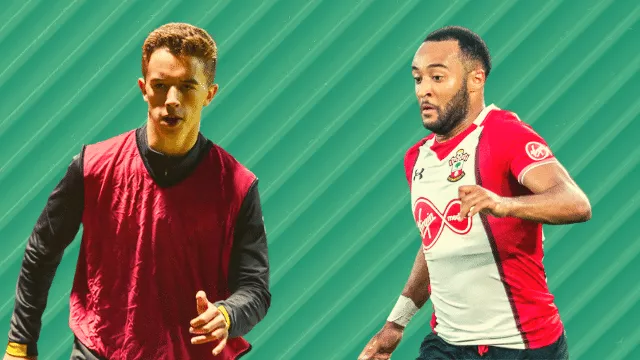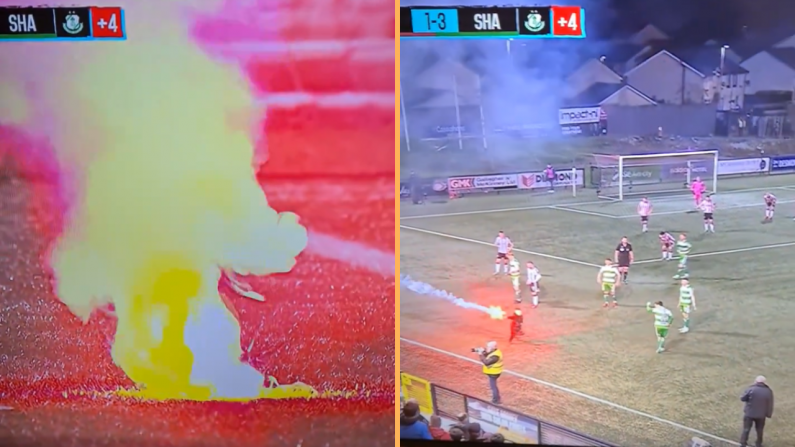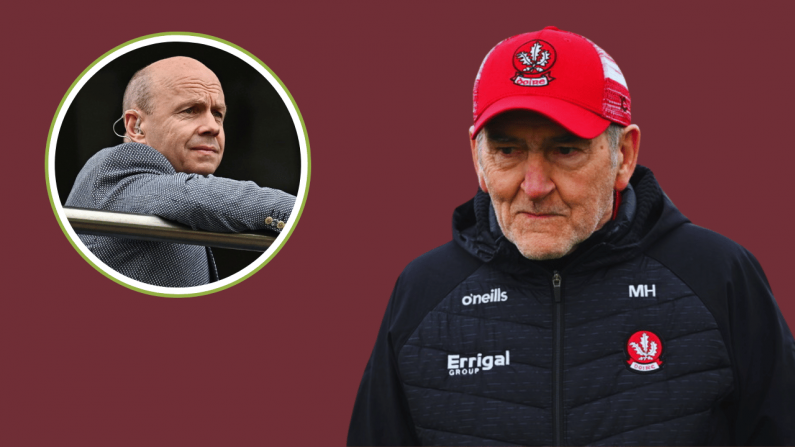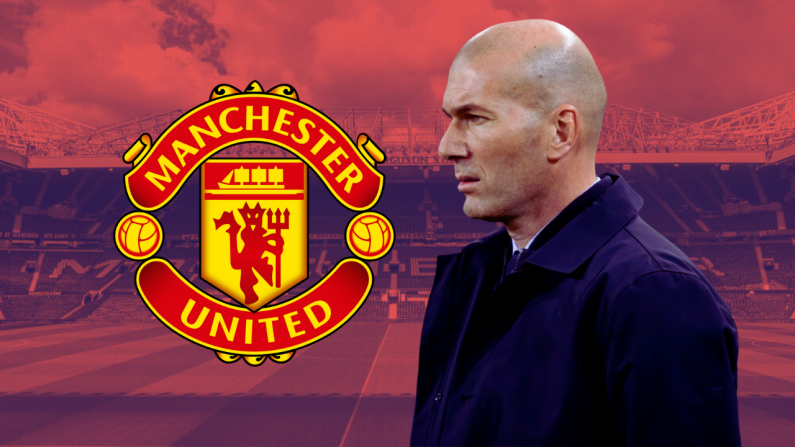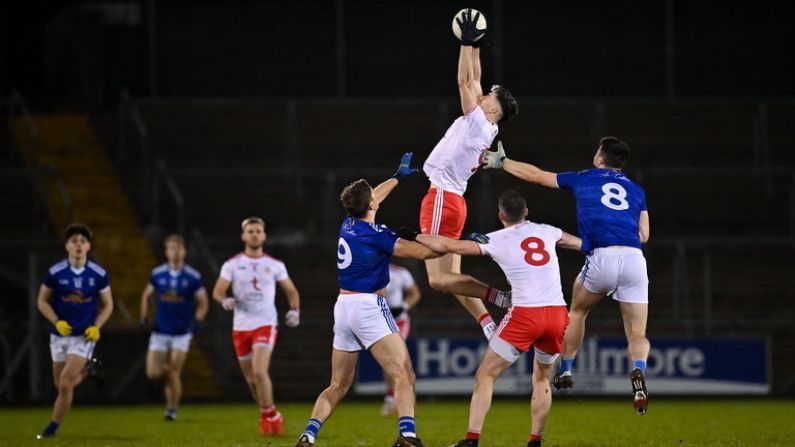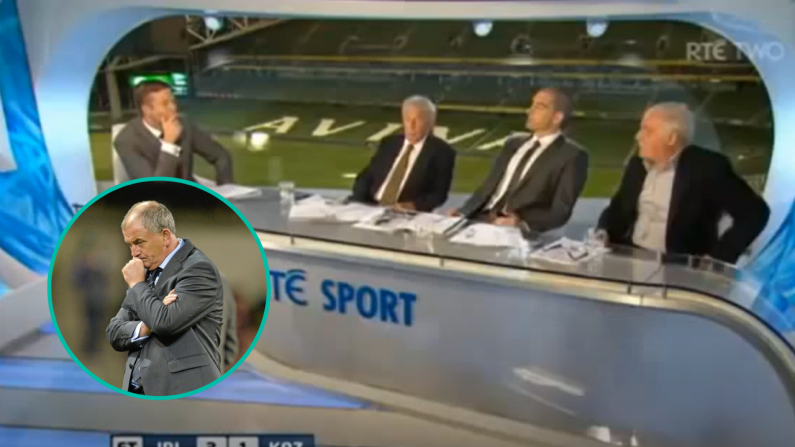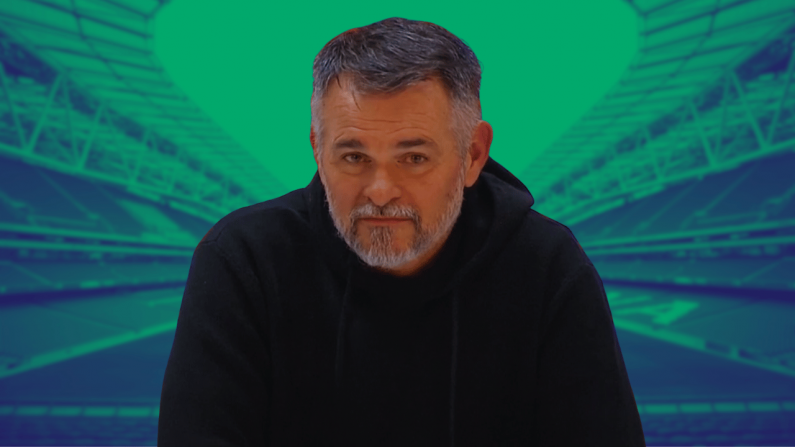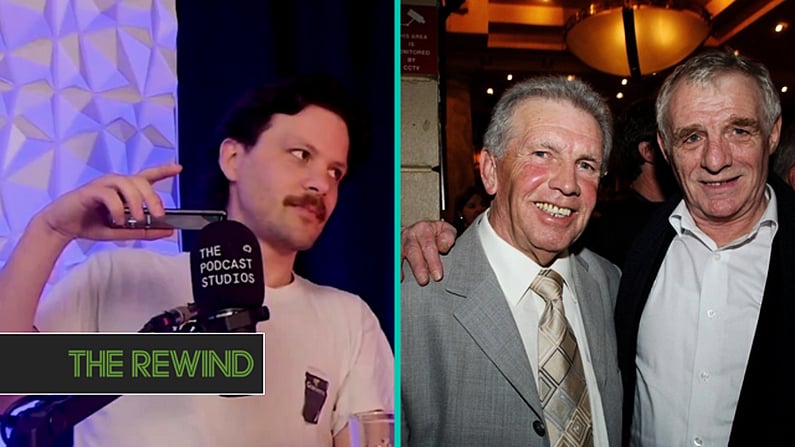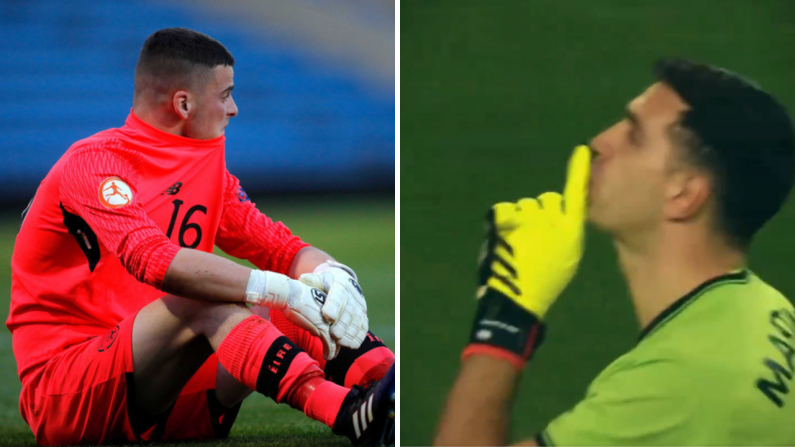In January 2009, Dublin was chosen as the host city for the 2011 Europa League Final.
That year's second-tier continental competition was to conclude in the newly built Aviva Stadium, which at that stage, was still a year away from completion.
The tournament, in 2009, was in its final year in its old guise of the UEFA Cup, and the previous year's final in Manchester was marred by destructive scenes following Rangers' loss to Zenit St Petersburg.
Never mind that, a showpiece event was coming to Dublin, it must be something of a miracle...
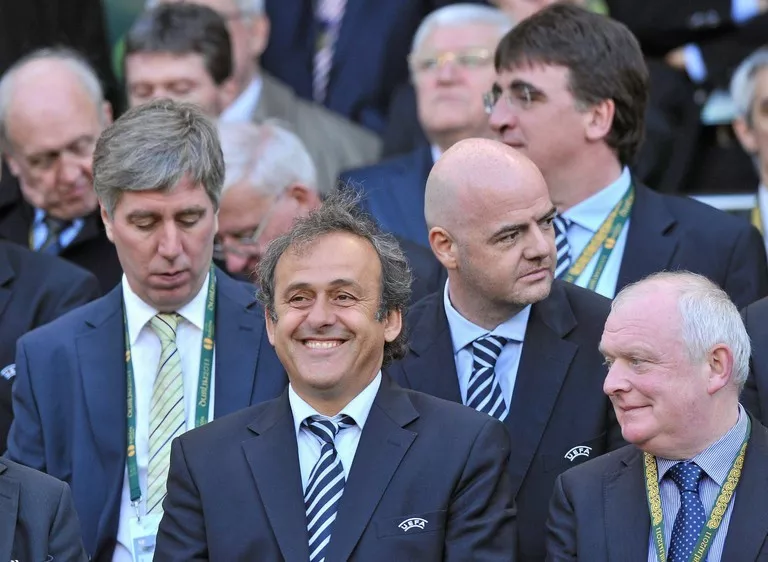
Oh yeah, we forgot about that.
Due to Aviva's sponsorship of the stadium and UEFA's prohibition on brands outside of the organisation, we needed a new name. Rather than plump for 'Lansdowne Road', the name that had been used for the venue for the guts of 135 years, the 'Dublin Arena' was the boring alternative used in lieu of Aviva's marketing.
That season's Europa League had a number of big names vying for silverware. The FAI were undoubtedly hoping that an English side would make it to the final, and with Manchester City and Liverpool in the knockout rounds, there was a chance it could happen.
However, both sides came undone in the Round of 16, with City losing to Dynamo Kiev and Liverpool being defeated by Portuguese outfit Braga.
Braga then faced Dynamo in the next round, beating the Ukrainian side on away goals to book their place in the semi-final.
That season's Europa League semi-finalists all called the Iberian Peninsula home: three Portuguese sides and one Spanish side.
Braga were drawn against Benfica, a club with a European pedigree which dwarfs most. On the other side of the draw, Villarreal were the only non-Portuguese side left in the hat, with Porto, a vivacious young team led by the youthful exuberance of Andre Villas Boas, were in their way.
Braga and Benfica played out a tense two-legged affair, with Braga again coming through a tie on the away goals rule.
Porto and Villarreal played out a different tie altogether, with Porto defeating their Spanish counterparts 5-1 in the first leg in Portugal. The second leg, with the tie all but over, finished 3-2 in favour of the Yellow Submarine, with Porto returning to a European final for the first time since their Champions League triumph in 2004.
So the stage was set, Portugal was to descend on Dublin 4 en masse.
Due to UEFA regulations, the capacity of the Aviva Stadium was reduced to 47,000. Tickets were released in phases, with the general public having two chances to secure tickets to the final. 12,000 tickets were allocated to each club, with Braga unable to make use of their full portion.
Before the final, the Europa League trophy was paraded around Dublin city, with a tour taking in the GPO, Dublin City Hall and the newly-built Terminal at Dublin Airport.
Pomp and ceremony is necessary for these kind of events.
Before the match, the Mayor of Braga pleaded with the Irish fans to cheer on his side.
“The Irish are nice, I know they will help us."
However, for him, the celebrations could already begin because making it to the final was achievement enough.
The same couldn't be said for a Porto side brimming with confidence, having swept all before them domestically, finishing the league season unbeaten and winning the cup.
Andre Villas Boas, in his first season as Porto manager, had established himself as next big thing in European football, and was already being earmarked for the Chelsea job, much like Jose Mourinho had been seven years previous.
His Porto team was awash with young stars, not least his star striker Radamel Falcao, who was on the radar of every major European club and Hulk, the Brazilian winger aptly named after a comic book character.
Furthermore, the summer previous, Villas Boas brought into the likes of James Rodriguez, Joao Moutinho and Nicolas Otamendi into the side. Moutinho, at that stage, had already established himself as a Portuguese international, but for Rodriguez and Otamendi, Porto provided the launchpad for future success.
The Braga side, in comparison, was more about the unit. Manager Domingos Paciência had coaxed former Newcastle United midfielder Hugo Viana to the club, with the Portguese midfielder being the only semi-household name to the Irish punter watching in Dublin 4.
After all the pageantry, the removal of nefarious advertising and flights from Portugal, a game of football occurred.
Braga started on the front foot in the first ever all-Portuguese European cup final, with Custodio going close. Soon after, they fell into a defensive shape, aiming to disrupt their compatriots on the break.
This gameplan suited Porto perfectly, with Hulk and Silvestre Varela causing Braga trouble on the wings.
The only goal of the game came on the 44th minute. Colombian midfielder Fredy Guarin broke into the Braga half before cutting back to find space for the cross. With impeccable movement, Falcao drifted to the far post, where his compatriot found him with a searching ball.
The Colombian striker still had work to do, but his header was pinpoint and found its way past Artur in the Braga goal.
In the second half, Braga took the game to Porto in search of an equaliser. The closest they came was right after the interval, when halftime substitute Mossoro stole the ball from Fernando and raced towards a one-on-one with Porto keeper and captain Helton.
However, the Braga attacker's effort was tame and Helton saved well.
Another Braga substitute, Albert Meyong had a chance for goal on the 77th minute, but his shot at the edge of the box ended in Helton's hands.
All of Braga's efforts were in vein, as the final whistle saw Porto win their third European trophy in eight years under Dublin's summer sky.
It marked the end of Andre Villas Boas and Radamel Falcao at the Portuguese club. Villas Boas would follow in Jose Mourinho's footsteps and join Chelsea soon after the final whistle. His tenure at Chelsea was marred in controversy, and he was subequently sacked after a little over eight months in charge.

Falcao, Porto's star man, moved on to Atletico Madrid for a fee in the region of €40 million. At the Spanish club, he scored 70 goals in 91 matches before moving to Monaco in 2013.
Despite the final taking place between two Portuguese sides, it was alleged by Dublin City Council that the final itself was worth around €25 million to the Irish economy.
For what it's worth, the 2011 Europa League final was probably the least interesting aspect of the tournament which took place in Dublin that year.
That summer, St Patrick's Athletic were on the brink of financial ruin ahead of their Europa League third qualifying round match against Karpaty Lviv in Tallaght. Saints players threatened strike action over European bonuses as the club go through two round in the competition against Icelandic and Kazakh opposition.
The matter was eventually settled, but the atmosphere surrounding the club for the rest of the season was morose.
In a more positive portion, Shamrock Rovers became the first Irish club to qualify for the group stages of a European competition when they beat Partizan Belgrade 3-2 on aggregate.
Although Rovers didn't come away from their Europa League group exploits with a point, they set a marker for Irish clubs in Europe going forward.
In 2011, our nation's capital was a Europa League town, and although two Portuguese sides fought at the showpiece, we made our own mark on the tournament as well.



